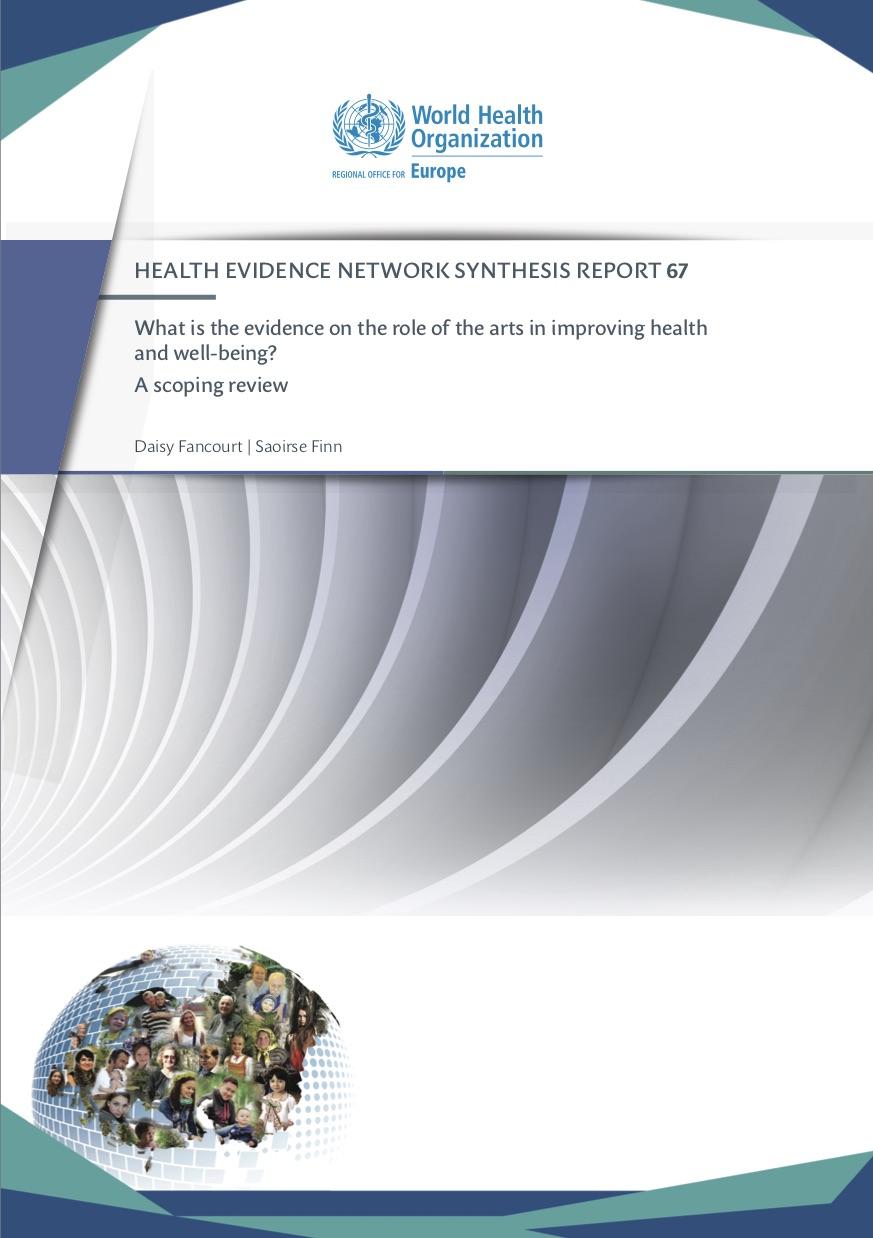
A new review of evidence has been published by the World Health Organization. The synthesis report, written by Daisy Fancourt and Saoirse Finn "aims to close this awareness gap by mapping the current available evidence in the field of arts and health."
The report focuses largely on the WHO European Region and collates results from over 3,000 studies.
The report suggests that the following policy implications for both culture, health and social care folllow from the evidence it maps:
Acknowledge the growing evidence base for the role of the arts in improving health and well-being by:
• supporting the implementation of arts interventions where a evidence base exists, such as the use of recorded music for patients prior to surgery, arts for patients with dementia and community arts programmes for mental health;
• sharing knowledge and practice of arts interventions that countries have found effective in their context to promote health, improve health behaviours or address health inequalities and inequities; and
• supporting research in the arts and health, particularly focusing on policyrelevant areas such as studies that examine interventions scaled up to larger populations, or studies that explore the feasibility, acceptability and suitability of new arts interventions.
Recognize the added health value of engagement with the arts by:
• ensuring that culturally diverse forms of art are available and accessible to a range of different groups across the life-course, especially those from disadvantaged minorities;
• encouraging arts and cultural organizations to make health and well-being an integral and strategic part of their work;
• actively promoting public awareness of the potential benefits of arts engagement for health; and
• developing interventions that encourage arts engagement to support healthy lifestyles.
Note the cross-sectoral nature of the arts and health field through:
• strengthening structures and mechanisms for collaboration between the culture, social care and health sectors, such as introducing programmes that are cofinanced by different budgets;
• considering the introduction, or strengthening, of lines of referral from health and social care to arts programmes, for example through the use of social prescribing schemes; and
• supporting the inclusion of arts and humanities education within the training of health-care professionals to improve their clinical, personal and communication skills.
Read more and download the report here
